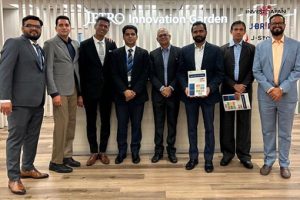Over 72 percent students and 65 percent Gen Z Indians were professionally impacted during the second wave of Covid-19, according to the latest study by LinkedIn in collaboration with research firm GfK. The ‘Career Aspirations Gen Z India’ study focused on insights of 1,000 Gen Z students and professionals in the age group of 18 to 24 years, across June 2021.
The survey captures their current sentiment, changing perceptions, and future outlook towards jobs, skilling, and networking opportunities. The study dives deep to understand how the pandemic affected the careers and education plans of India’s youth, and what barriers they face when pursuing jobs and skilling opportunities today.
90 percent of Gen Z job applicants are demotivated after job offer rejections
The study shows that nearly 70 percent of Gen Z job applicants didn’t get a positive response after waiting for long periods, while a similar proportion said their applications were either cancelled or delayed indefinitely. Due to these setbacks, 90 percent of Gen Z job applicants are demotivated. When asked what they felt was the biggest barrier to get ahead in the pandemic, Gen Z Indians cited ‘fewer opportunities’, followed by ‘slower recruitment’ and ‘higher competition’ as the top 3 reasons affecting their job search today. Other barriers in pursuing job opportunities include lack of guidance for skilling and increased familial responsibilities due to Covid-19.
Echoing this travesty, 72 percent of students stated that internship opportunities had also greatly reduced during the pandemic’s second wave. Among those who are currently employed, 32 percent of Gen Z Indians experienced a pay cut while 25 percent lost a job opening because the company cancelled the job role due to the pandemic.
85 percent of Gen Z Indians turn to online learning despite challenges
The second wave of Covid-19 has disrupted the education plans of nearly 75 percent students and Gen Z Indians. In fact, 40 percent of those with higher academic aspirations have postponed or cancelled their plans due to safety concerns, financial constraints, and travel restrictions. Such is the disruption that every fifth (20 percent) Gen Z Indian is now pivoting to a different learning program than originally planned.
A majority of Gen Z Indians are redefining their academic plans to cope with the changes at such a career-defining juncture. Consumer sentiment from the report shows that 85 percent of Gen Z Indians are willing to take up online learning, despite ‘too many distractions at home’, ‘connectivity issues’, and ‘limited interaction with peers’. When asked how they choose their online courses, more than half of Gen Z Indians said they look for quality of faculty (58 percent), affordability (56 percent), and accessible content (52 percent).
Given today’s dynamic job market, India’s young professionals are sharpening their focus on developing the right skills to stand out in their job search. The report shows that 46 percent of Gen Z Indians are looking for mentors who can guide them towards the right skilling pathways.
51 percent of Gen Z Indians want employers to make skill-based hires
As upskilling and collaboration have become workforce essentials in today’s challenging professional landscape, every second Gen Z professional (51 percent) wants employers and leaders to make skill-based hires today.
In fact, Gen Z Indians are sharpening their focus on upgrading their skills to improve their self-confidence (47 percent), widen career opportunities (45 percent), and fast-track growth (34 percent) and productivity (32 percent).
While tech skills remain a strong priority in today’s rapidly digitising economy, India’s youth is also recognising the growing importance of human skills today. Interestingly, the survey finds that among those who are learning soft and hard skills today, 2x more Gen Z Indians are learning the top 5 soft skills (~60 percent) than the top 5 hard skills (~30 percent).
The top 5 soft skills pursued by Gen Z Indians include Creative Thinking, Problem Solving, Time Management, Leadership, and Effective Communication; while top 5 hard skills include Data Science, Marketing, Engineering, Financial Management, and AI & Automation.
The pandemic has also caused a great shift in employee needs and priorities, as more than half of Gen Z Indians want organizations to offer flexible schedules (52 percent), more time off for upskilling (48 percent), and equal access to physical and emotional healthcare provisions (48 percent). Beyond job perks, Gen Z Indians are also rooting for an inclusive workplace culture where employers communicate transparently (55 percent), offer customized career growth plans (48 percent), and make professional growth an experience, not a process (44 percent).
“As one of the youngest nations in the world, India’s future of work will be driven by Gen Z professionals, whose new-age skills can revitalise our economic recovery. But 70 percent of Gen Z Indians had their job applications rejected due to hiring challenges during the pandemic. Employers must treat this as a distress call to urgently reimagine how they hire and develop talent to prevent young professionals from being left behind,” said Ashutosh Gupta, India Country Manager, LinkedIn.






















